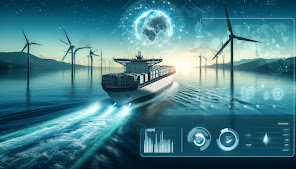Navigating the Green Horizon: Pioneering Environmental Practices in Marine Technology
As global attention sharpens on environmental sustainability, the maritime industry is at a critical juncture. This sector, historically known for its significant contribution to global carbon emissions, is currently undergoing a transformational shift towards greener practices. With a well-articulated agenda, shipowners, builders, energy producers, port authorities, regulators and technology developers worldwide have a unique opportunity to discuss opportunities, address critical issues and develop strategies to reduce marine air pollutants, improve fuel efficiency, optimize operations, and create sustainable future for the maritime sector.
The impetus for these changes comes from many fronts. Regulators are putting increasing pressure to reduce CO2 and greenhouse gas emissions. This, combined with the innovative efforts of entrepreneurs and government incentives, is pushing the industry forward. Central to this evolution is growing investment in battery manufacturing and significant advances in battery chemistry and safety. These developments lay the foundation for a future where maritime operations can significantly reduce their carbon footprint.
This transition to sustainability will be the focus of discussions at the fifth Riviera International Conference on Marine Hybrid, Electric and Hydrogen Fuel Cells in Bergen, Norway, from 29 to 31 October 2024. This event is going to bring together the best minds. in the industry to share the idea of advanced environmental solutions. Experts will delve into the latest advances in carbon-free technologies, focusing on marine batteries and hydrogen fuel cells. These discussions are not just academic, but focus on actionable strategies that can be implemented across the industry.
From a personal perspective, this move towards a more sustainable maritime sector is not just a regulatory necessity; it is an ethical imperative. As the world grapples with the effects of climate change, industries such as marine, which are major sources of global emissions, must lead by example in adopting green practices. This transformation is about more than just meeting emissions targets; it is about ensuring that future generations inherit a planet that can still support their livelihoods.
The marine sector's move towards greener technologies is both exciting and important. While challenges remain, the pace of innovation and commitment of industry leaders point to a promising path forward. The upcoming conference in Bergen will be a key moment for stakeholders to come together and strengthen their commitment to a sustainable future. The world is watching as the maritime industry has a chance to set an example by demonstrating that economic growth and environmental protection can go hand in hand.
By participating in this conference and implementing the strategies discussed, stakeholders can not only comply with the rules, but also pioneer a new era of sustainable maritime operations. It's not just about reducing emissions; it's about fundamentally rethinking how we approach maritime transport and energy use in a way that prioritizes the health of our planet.




Comments
Post a Comment